Smart City Evaluation Platform and Service is an integrated smart city solution for local governments to become smarter, more sustainable and more attractive for investors and start-ups. SmartCEPS project aims at developing an assessment tool and consultancy service for European municipalities to measure how they perform on the field of ‘smart and sustainable city’, how they can attract investors and how entrepreneurship friendly they are.
SmartCEPS - Smart City Evaluation Platform and Service
What is SmartCEPS?
SELF-ASSESSMENT TOOL
The free online tool measures the smart qualities, investor attractiveness and entrepreneurship friendliness of cities.
CONSULTANCY
Based on the evaluation, SmartCEPS provides consultancy and a sound action plan for municipalities.
CLUSTER
The platform functions as a match-making channel between municipalities and smart city solution providers.
Our vision
The energy and resource need of cities is growing. Municipalities race for new investments while try to manage the available resources and energy more effectively.
SmartCEPS is an integrated smart city solution for local governments to become smarter, more sustainable and more attractive for investors and start-ups. The project addresses three major problems connected to current smart city development: the lack of common standards and experiences, the mainly ICT-technology focused planning approach and the disadvantage of SMEs against large companies. The objectives of the project are twofold: to develop a consulting service for enhancing urban development and to help SMEs working in the field of smart and sustainable cities.
Our consortium creates a free assessment tool and offers deep analysis and consultancy service for European municipalities to measure how they perform on the field of ‘smart and sustainable city’, how they can attract investors and how entrepreneurship friendly they are. Based on the evaluation, SmartCEPS provides a sound action plan and help municipalities to find the best partner in a cluster of solution provider businesses.
Project specific know-how of the Consortium Partners
The consortium partners have extensive professional experience and network in the field of smart and sustainable city development, assessment methodologies and consultancy.
SmartCEPS creates a freemium, online smart city evaluation tool and offers deep analysis and consulting service for municipalities.
- methodology of assessing and supporting the smart and sustainable development, raise investment attractiveness and enhance business generation potential of urban settlements through consultancy
- definition of the smart city, meeting the needs of sustainable urban development
- identification of a standardized smart and sustainable indicator system of urban development, through the analysis of existing indices
- knowledge database of smart solutions that can enhance the performance, livability and help reduce energy consumption of cities
- financing models that can help municipalities in realizing the projects
- business cluster of sustainable businesses
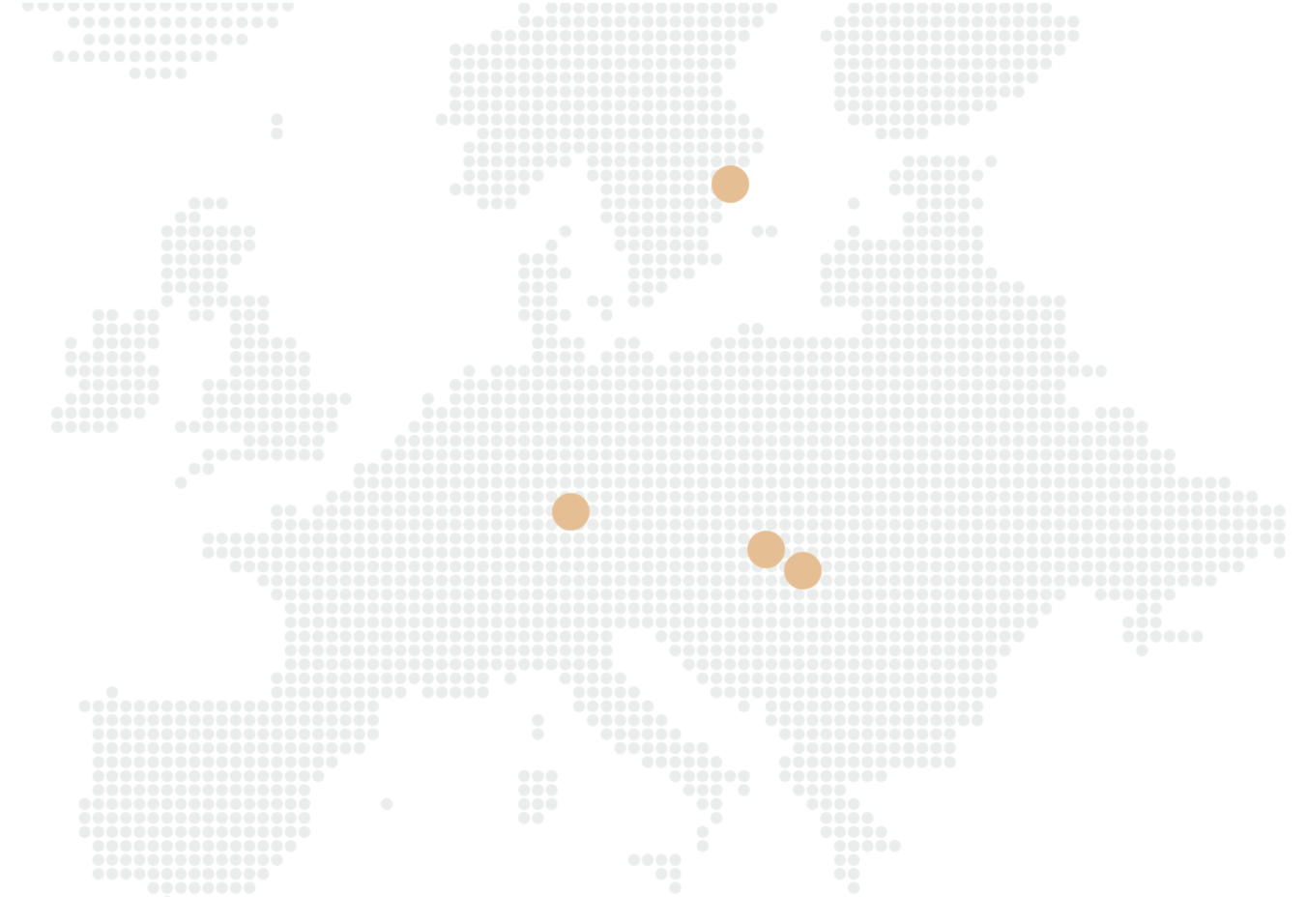
Consortium Partners

ABUD – Advanced Building and Urban Design
ABUD is delivering sustainable urban development concepts for investors in Hungary and beyond (e.g. Oman or China) and is invited to conferences for municipalities and higher education to teach design guidelines and solutions. ABUD was responsible for the energy efficiency action plan in the Budapest2030 urban development concept and delivered solutions for the smart city concept of EYOF2017 in Gyor.
abud.hu

IVL Swedish Environmental Research Institute
IVL Swedish Environmental Research Institute has a broad environmental profile, with Sustainable Urban Planning as one of its focus areas. Unlike many other players, IVL combines applied research and development with close collaboration between industry and the public sphere. IVL also has in-house expertise on ICT development and has developed e.g. Envirobase, the database of Swedish environmental technology companies, reference objects, study visits and trainings.
www.ivl.se

ESSIGPLAN GmbH
ESSIGPLAN has deep knowledge in methodology development for sustainable building and city software tools and in KPI development for sustainability assessment of districts and cities. EP already has been the technical and scientific leader of methodology development for new innovative software tools for smart and sustainable homes, offices and city consulting.EP has many years of experience in consulting German municipalities (e.g.Munich, Wolfratshausen, Kirchheim b., München, Bamberg etc.).
www.essigplan.com

DBH Project Management
DBH provides international business and business infrastructure services for more than 20 years. Their purpose is to assist companies in domestic and regional expansion while helping them optimize and more efficient their operations. Furthermore DBH Group provides venture capital fund and business services to technology-intensive companies who are planning to expand internationally.
dbh-group.com
SmartCEPS Services
Self-Assessment Tool
Report
The free basic assessment results in a condensed report, covering all focus areas. Advanced assessment offers options to choose between reports with different focus and higher level of details.
Ranking
The visualized results highlight the weaknesses and strengths of the city. The cities are ranked based on benchmarks set through the best performing cities and EU directives.
The web-based platform allows municipalities to evaluate their ’smart city’, ’investor attractiveness’ and ’entrepreneurship friendliness’ performance based on Key Performance Indicators.
Consultancy
We offer consulting service based on the evaluation, to improve the weaknesses and create an action plan along with the achievable financial instruments.
Cluster
We link municipalities with the business cluster of SMEs and industry partners working in the field of smart city and help them find the best possible partner for realizing their projects.
SmartCEPS Benefits
Holistic
The project covers the whole city concept, instead of focusing on a handful of areas. The online platform enables self-assessment for the cities in every minute, in all the three areas (the smart qualities, investor attractiveness and entrepreneurship friendliness).
Open & Accessible
SmartCEPS offers basic report for free to municipalities: users are free to assess smart maturity, attractiveness for investors and SMEs on basic KPIs and take actions for further improvement.
Transparent Ranking System
Our database allows municipalities to better understand how they rank relative to other cities based on an up-to-date benchmarking. This peer group comparison is enabled by an online platform that collects and maintains an up-to-date database, based on content supplied by user municipalities and on published new data.
Integrated Service Package
We cover the full range of services in helping municipalities become smarter and more sustainable, from the identification of points of potential improvement based on an assessment of their goals and current state, to the generation of action plans, and finally to assisting municipalities in finding the best possible partners for the implementation of actions.
News
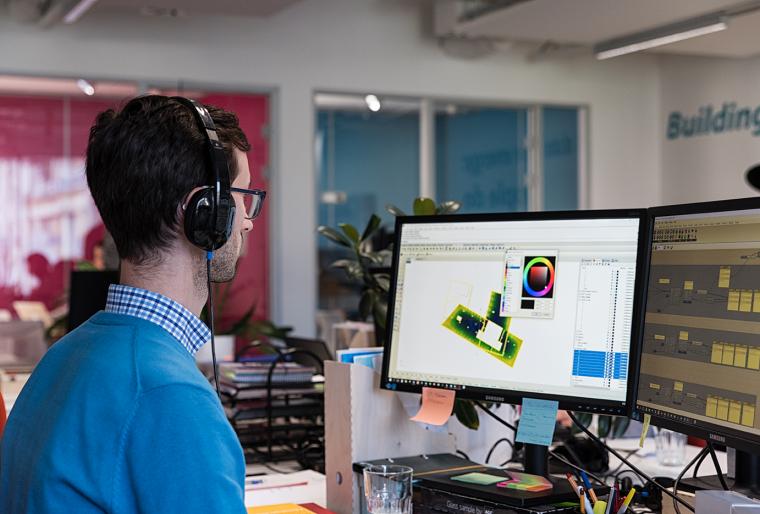
SmartCEPS tool is under development
SmartCEPS is an integrated smart city solution for local governments to become smarter, more sustainable and more attractive for investors and start-ups. Our consortium creates a free assessment tool and offers deep analysis and consultancy service for European municipalities to measure how they perform on the field of ‘smart and sustainable city’, how they can attract investors and how entrepreneurship friendly they are. Based on the evaluation, SmartCEPS provides a sound action plan and helps municipalities to find the best partner in a cluster of solution provider businesses. To get direct information of the project’s most important proceedings, please subscribe to our newsletter!
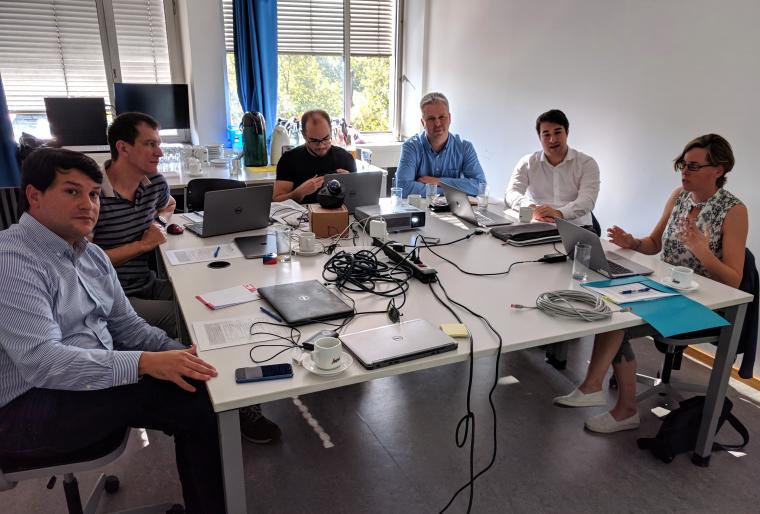
SmartCEPS consortium meeting in Munich
The SmartCEPS consortium has held a 2-day long personal meeting in Munich to discuss the progress of the project. With the development phase nearing its completion, the partners focused on detailed design decisions regarding the SmartCEPS system, and the planning of validation and demonstration activities.
As the term of the EU-project is edging towards conclusion, this meeting was a meeting of results. The list and specification of the key performance indicators are finished, as are the algorithms to account for their interactions to run city assessments. The novelties of the SmartCEPS KPI system has been submitted for scientific publication to lead by example in the transition from the state-of-the-art KPI lists to holistic decision-support systems. On the executive level partners agreed on the legal basis of project continuity beyond the conclusion of what is hereafter a ‘phase 1’ of revolutionising the digital transition of urban management. The final period in phase 1 will be finalising development and validation work to reach technological readiness level 7, and bringing our services to the market.
The key takeaway from this meeting is fully embracing the disruptive nature of SmartCEPS innovations. A highly collaborative, analytics-supported decision-making and the underlying interconnectedness of urban performance is unprecedented in urban management, and it is thus more and more crucial to keep the future SmartCEPS actors in the loop. With so many having something valuable, insightful and important to say, it is paramount for SmartCEPS to be able not only to hear them, but to be the discussion itself.
We are developing a process, not a product!

Second stakeholder meeting in Budapest
The second stakeholder meeting was held on the 10th of April in Budapest, Hungary. Once again, a cluster of urban development professionals, representatives of municipal departments dedicated to city management, urban planning, the environment, and technology providers have engaged in discussing the practical challenges of smart city transition. The goal of the second workshop was to introduce and refine the possible business models for SmartCEPS, and to identify the practical pitfalls a market entry could entail. In particular, since the values of smart cities would ultimately precipitate at cities, their capabilities to support and uptake a smart city framework was in focus. Issues ranging from data collection capacities, limitations and opportunities, the quality of public databases, to the administrative processes within municipalities were discussed. Outputs of the meeting will be applied to further develop the business case for SmartCEPS, clarifying what role each stakeholder can and cannot fulfil, how could they get the most value out of SmartCEPS services and what are the best channels of implementation.
According to the participants, a key obstacle any smart city development faces, is the scarcity of data, which cannot be adequately collected by public data managers, and are distributed at an array of sectoral data owners, such as utility operators. Another challenge is the tight room for manoeuvre for municipalities, burdened with rigid, siloed administrative structure, lack of smart city-related expertise, and lack of funding to lead the way in smart city transition. A key lesson learned is that no single actor in the smart city nexus is well equipped to drive smart transition of cities, but municipalities, citizens, technology providers, and consulting bodies have the potential to combine their distinct, complementary values to do so.
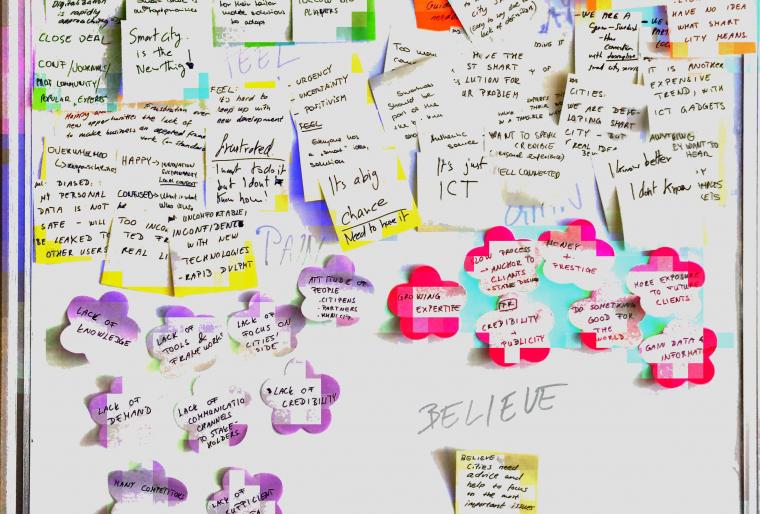
Project meeting in Budapest
SmartCEPS consortium partners have once again held a 2-day long personal meeting to re-cap the status of the project and to discuss how to proceed. The event was hosted by DBH in Budapest, Hungary, and was centred around progress reporting, workshops and follow-up discussions to plan next steps.
With the designing of the key performance indicator system – the backbone of SmartCEPS services – at 80 % readiness, scientific work is transitioning to the architecture of the service and specifying its actionable outputs. The development of SmartCEPS tools and applications – is now also on track, with IVL presenting the first mock-up of the desktop application. From hereon a closer integration of design, ICT and business case workflows are expected to ensure both the technical feasibility of the designed services, and their clear, substantial added value to the colourful family of users enabled by the SmartCEPS platform. Thus the partners continued with their tradition of visioning workshops and sharing experience of the second stakeholder meeting held earlier in Budapest to have a deep and common understanding of the future SmartCEPS inhabitants.
The most important lesson of the meeting is the importance of enabling the collaboration of the four key, but individually limited players of smart city transition: the citizens, the local government, the knowledge sector, and the solution providers. The ambition of SmartCEPs is to become that platform and the industrial standard of collaborative smart city transition. The partners will meet again in early autumn, 2018.
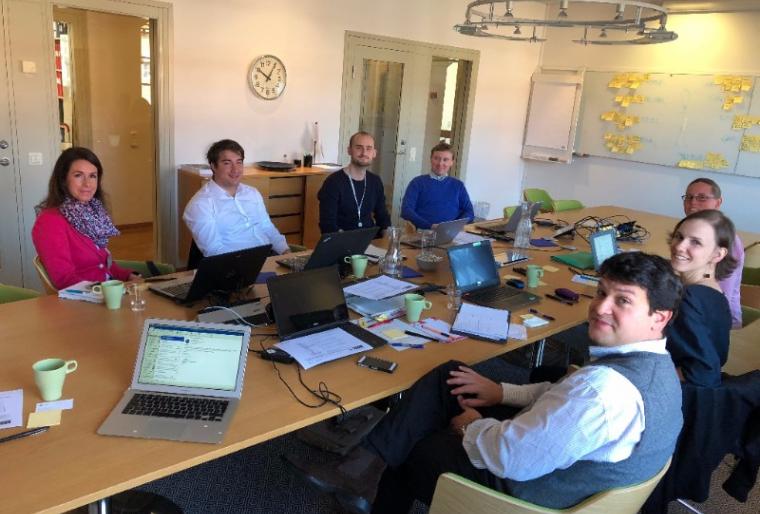
SmartCEPS consortium meeting in Stockholm
The consortium partners of SmartCEPS had a successful 2-day long personal meeting in October to discuss the status of the project tasks and issues related to further development. The meeting took place in the headquarter office of IVL in Stockholm, Sweden. Several workshop activities were held, where key topics were the development and connection of Key Performance Indicators of the assessment system, furthermore the development of the online tool. During the 2-day meeting, experiences from the stakeholder meeting, which took place in Budapest, were also shared and the partners discussed how outcomes of that meeting could inform the future advancement of SmartCEPS. The next personal meeting is planned in spring 2018.
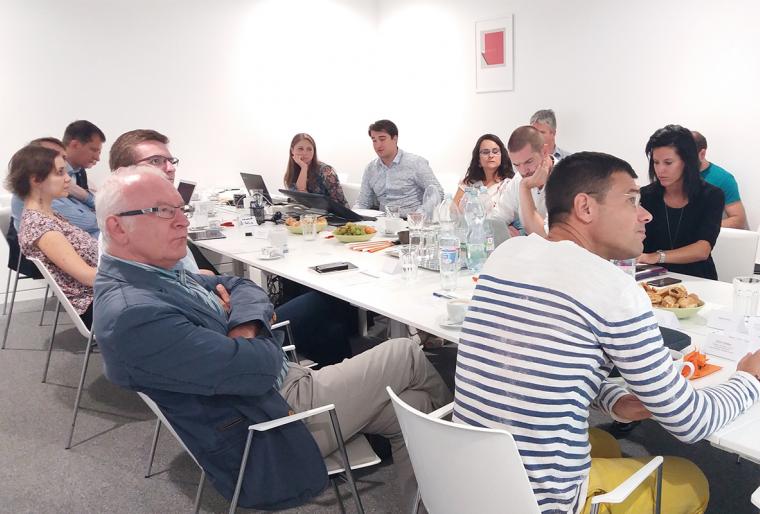
Stakeholder workshop in Budapest, Hungary
On the 31st of August a stakeholder workshop was held in Budapest, Hungary, with representatives of municipalities from departments of city management, urban planning, environmental development, and human resources, among others. The aim of the meeting was to explore what cities think about smart city development concept, how they handle it currently in their practice and what are the key challenges, problems they face. In addition, discussions were held on current urban regulation trends, experiences with smart solution providers and decision-making processes. Outputs of the meeting were used to further develop the concept of the SmartCEPS and to better adjust project features to cities’ requirements about smart and sustainable development. According to the majority of the participants, smart city is a soft concept, which is capable of absorbing a large variety of themes depending on context of application. Furthermore, there is a gap between municipal strategy and technical solutions of providers. Due to lack of smart city dedicated expertise, there is no concept on smart actions for sustainability goals. Thus, cities would need help to find out what is the next step forward in smart city development.

SmartCEPS at CESB 2019
We participated one of the region’s most important professional gathering, Central Europe towards Sustainable Building (CESB) conference on the 2nd of July in Prague. Viktor Bukovszki (ABUD) as co-author presented the publication “From Assessment To Implementation: Design Considerations For Scalable Decision-support Solutions In Sustainable Urban Development” (Viktor Bukovszki, Diána Apró, Ahmed Khoja, Prof. Dr. Natalie Essig, Dr. András Reith PhD).
The study explores the scalability of indicator systems into a shared framework for smart and sustainable cities by practice-based research during the development of the SmartCEPS project. SmartCEPS is an assessment system and maturity model based on key performance indicators (KPIs) for small- and medium-size European cities. In its architecture, indicators are organized in a causal network capable of capturing synergies, co-benefits and payoffs of decisions; structural metadata provides the means for a gradual customisation of the system; and finally, the indicator pool is scalable by complexity, ensuring different levels of detail in assessments. The study concludes that gradual customisation, network organisation, and open-ended scalability are the proxies for developing decision-support instruments from KPIs.
The paper is available here.
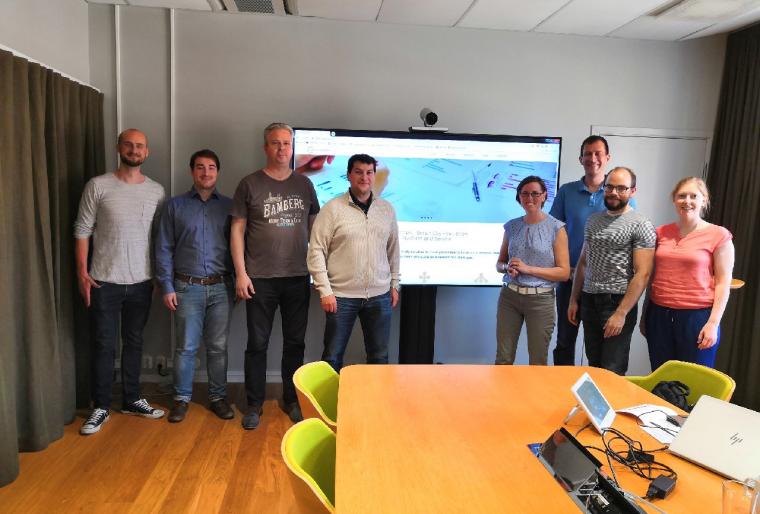
Stakeholder meeting in Stockholm
Team SmartCEPS convened once more for a 2-day meeting discussing the finalization of the project. The event was hosted by IVL in Stockholm, and focused on software finalization, the ongoing validation and demonstration activities, and continuity.
The last period saw the finalization of most design and business-planning related activities, and the software prototype. A new, disruptive methodology for a data- and collaboration based urban planning was presented, outlining the know-how, the core competences, and the everyday practice of the prospective SmartCEPS consultants. Supporting this methodology, IVL presented the prototype for the SmartCEPS software, now capable of assessment on the interconnected model of urban performance, as well as all the functionalities required for a virtual marketplace of consultants and ICT solution providers.
As phase 1 of SmartCEPS is coming to a closure, partners are now actively seeking ways to further develop the system. By answering the question of how to present and apply urban data in decision-support, the project opened up many more questions on specific urban subsystem relationships, and what urban information means to different stakeholders. SmartCEPS has become an open call for professionals and researchers in the field to engage in untangling the complexity of urban processes. In the meantime, the results accumulated so far will serve as the foundation for training and providing the tools for a new generation of urban professionals, encompassing skills in data science, integrated planning, and participatory planning.

Call to action: Survey
Defining urban performance relies on an open collaboration among the legion of disciplines concerned with the city. We want to rally a dedicated community of professionals, whose discourse will define the way urban information is used. Follow this link to take part in disentangling the complexities of urban performance!

Turning data into actionable insights
After two years of research and development, the SmartCEPS urban intelligence platform is close to launch! This post will give you a very first sneak peek on some of the major features of the project.
Our core idea was to create a data-driven, evidence-based decision-support system to help small and medium sized cities go beyond experience and intuition.
Consultants play a major role in this concept: professionals who subscribe for SmartCEPS, gain access to a cutting-edge software, a training, and an up-do-date pool of suppliers in the city digitalization market. Moreover, they join a collaborative network of much sought-after urb-tech experts.
The end-beneficiaries are of course the cities. Consulting services include developing a bespoke urban data platform, oversight and monitoring of data infrastructure, diagnosis of urban performance, prediction of cross-sectoral impacts of decisions, managing citizen participation, synthesising knowledge of city-related sectors, needs-based ICT investment and urb-tech market guidance. Full text.

This project has received funding from the Eurostars-2 joint programme with co-funding from European Union Horizon 2020 research and innovation programme.